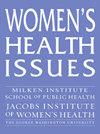“Neither Side Really Knows… What an Abortion Is Like”: A Qualitative Analysis of Medical Students’ Experiences With Second-Trimester Procedural Abortions
IF 2.5
2区 医学
Q2 PUBLIC, ENVIRONMENTAL & OCCUPATIONAL HEALTH
引用次数: 0
Abstract
Objectives
Medical students value abortion education; however, there has been little study regarding participation in second-trimester procedures, which are less common yet receive significant societal attention. We aimed to explore medical students’ perceptions of participation in second-trimester procedural abortions to optimize this educational experience.
Study Design
We conducted qualitative semi-structured interviews with third- and fourth-year medical students who voluntarily participated in second-trimester dilation and evacuation cases. We coded interviews inductively and performed thematic content analysis until thematic saturation was reached.
Participants
We interviewed 25 medical students, including 16 third-year and nine fourth-year students. Most participants were female (64%) and white (58%) and had no prior abortion care experience (80%).
Results
Four major themes emerged: 1) students felt unprepared for second-trimester procedural abortions and were unable to find adequate educational resources for preparation; 2) students experienced complex emotional reactions to the procedures, often finding the experience more challenging than expected; 3) students observed implicit expectations and biases in the learning environment; and 4) students highly valued their involvement in abortion procedures, noting that participation was important for their future practice and allowed acquisition of essential clinical skills.
Conclusions
Medical students value the educational opportunity to participate in second-trimester procedural abortions; however, most feel unprepared for the technical and emotional aspects, despite utilizing available educational resources. To maximize educational experience and psychological safety, educators should develop specialized training resources. This could strengthen physician knowledge and comfort with abortion care in the future, ultimately improving patient care.
"双方都不知道......堕胎是什么样子":医学生对第二孕期程序性流产经历的定性分析》。
目的:医学生重视人工流产教育;然而,有关参与第二孕期人工流产手术的研究却很少,因为这种手术并不常见,但却受到社会的广泛关注。我们旨在探讨医学生对参与第二孕期程序性流产的看法,以优化这一教育体验:研究设计:我们对自愿参与第二孕期扩张和排空手术的三年级和四年级医学生进行了半结构化定性访谈。我们对访谈进行了归纳编码,并进行了主题内容分析,直至达到主题饱和:我们对 25 名医学生进行了访谈,其中包括 16 名三年级学生和 9 名四年级学生。大多数参与者为女性(64%)和白人(58%),之前没有人工流产护理经验(80%):结果:出现了四大主题:1)学生对第二孕期的程序性人工流产感到毫无准备,并且无法找到足够的教育资源进行准备;2)学生对人工流产过程经历了复杂的情绪反应,往往发现这种经历比预期更具挑战性;3)学生观察到学习环境中存在隐含的期望和偏见;以及 4)学生高度重视参与人工流产过程,指出参与人工流产过程对他们未来的实践非常重要,并且可以获得基本的临床技能:结论:医科学生重视参与第二孕期程序性人工流产的教育机会;然而,尽管利用了现有的教育资源,大多数学生仍感到在技术和情感方面准备不足。为了最大限度地提高教育体验和心理安全,教育者应开发专门的培训资源。这可以加强医生对人工流产护理的了解和舒适度,最终改善对患者的护理。
本文章由计算机程序翻译,如有差异,请以英文原文为准。
求助全文
约1分钟内获得全文
求助全文
来源期刊

Womens Health Issues
Multiple-
CiteScore
4.50
自引率
6.20%
发文量
97
审稿时长
32 days
期刊介绍:
Women"s Health Issues (WHI) is a peer-reviewed, bimonthly, multidisciplinary journal that publishes research and review manuscripts related to women"s health care and policy. As the official journal of the Jacobs Institute of Women"s Health, it is dedicated to improving the health and health care of all women throughout the lifespan and in diverse communities. The journal seeks to inform health services researchers, health care and public health professionals, social scientists, policymakers, and others concerned with women"s health.
 求助内容:
求助内容: 应助结果提醒方式:
应助结果提醒方式:


